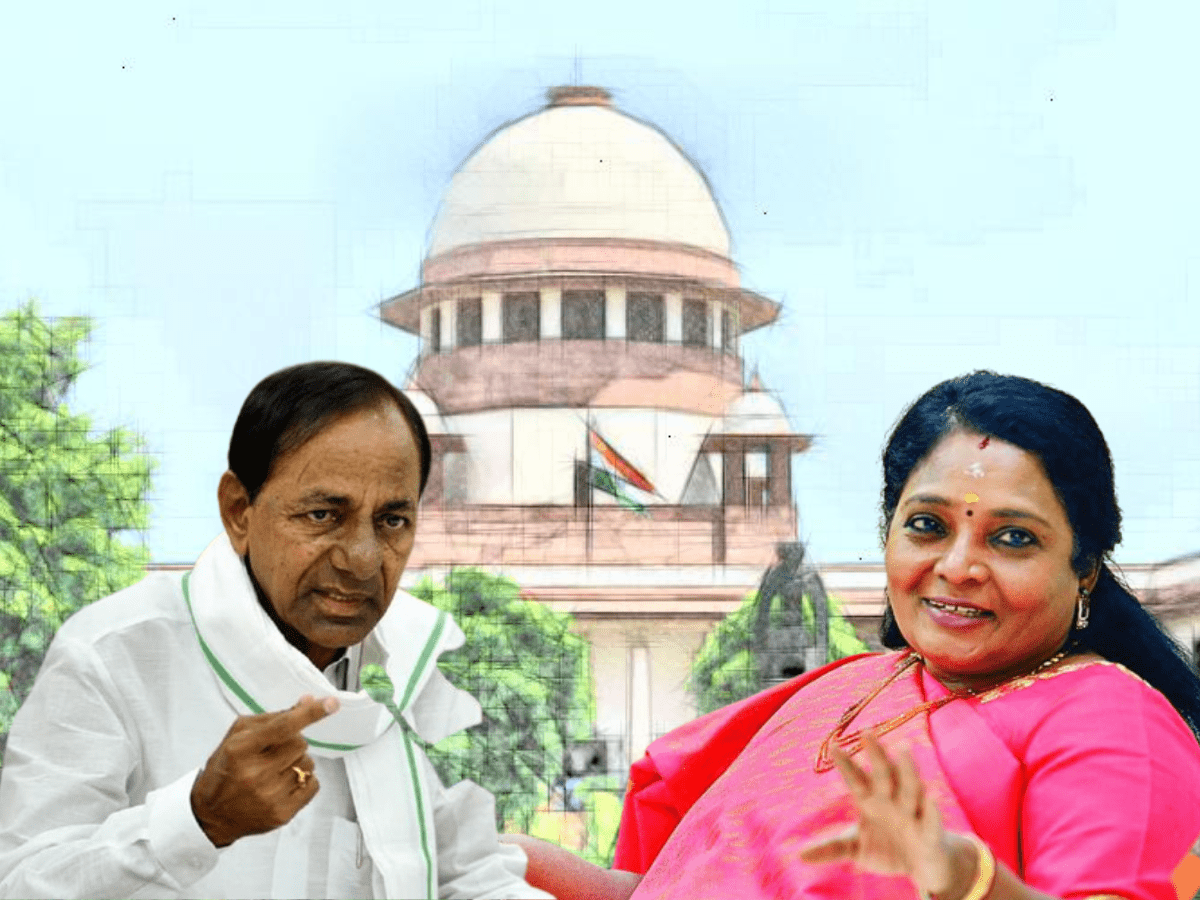
New Delhi: The Supreme Court on Monday observed that the Constitution’s Article 200(1) and the words “as soon as possible” have a significant constitutional intent and must be borne in mind by constitutional functionaries, while hearing a plea filed by the Telangana government seeking direction to Governor Tamilisai Soundararajan to clear ten bills passed by the Assembly and awaiting her assent.
A bench headed by Chief Justice of India D.Y. Chandrachud and comprising Justice P.S. Narasimha said: “Article 200 of the Constitution… the first proviso of Article 200 states that Governor may, as soon as possible, after the presentation of the bill for assent, return the bill, if it is not Money Bill together with the message for reconsideration to the state legislature.”
The bench said the expression “as soon as possible” has a significant constitutional intent and must be borne in mind by constitutional authorities.
As Solicitor General Tushar Mehta, representing the Telangana Governor, submitted that this observation in the order was not necessary, the Chief Justice said: “Mr Solicitor, we have not made this observation about this particular Governor. We said it must be borne in mind by constitutional authorities.”.
Mehta said: “This was not needed… I can say nothing more… I do not want to vitiate the atmosphere further.”
Article 200 of the Constitution empowers the Governor to either assent to a Bill passed by the state legislature or to withhold assent therefrom or to reserve the Bill for consideration of the President.
The top court disposed of the petition after Mehta submitted that he took instructions following a direction and as of now, no bills are pending.
During the hearing, senior advocate Dushyant Dave, representing the Telangana government, urged the court to pass directions “once and for all” to put the issue at rest and said “your lordships may decide this once and for all. In Madhya Pradesh bills are being assented to within one week, in Gujarat within one month. Telangana is an opposition state….so this is happening.”
Mehta opposed these submissions and contended that he would not generalise the matter like that.
Dave then said, “You will not because you’re a law officer appointed by the Central government” and Mehta responded that shouting will not help before this court.
Dave said, “Did I shout? This is the law officer of India. Every time I appear, he has an allergy to me. I have an allergy to you… He has stooped so low, I haven’t seen this in 44 years!”
In March, the Telangana government approached the Supreme Court seeking direction from Governor Tamilisai Soundararajan to give her approval to the bills passed by the state legislature. In a writ petition, the state government has brought to the notice of the Supreme Court that 10 bills are pending with Raj Bhavan. While seven bills are pending since September 2022, three bills were sent to the Governor last month for her approval.
The plea contended that Article 200 empowers the Governor to either assent to a Bill passed by the state legislature or to withhold assent therefrom or to reserve the Bill for consideration of the president and this power is however to be exercised “as soon as possible”.
Elected legislators at ‘mercy’ of governors
Elected legislators are at the “mercy” of governors, the Telangana government told the Supreme Court on Monday after the governor’s office in the southern state apprised the court that no bills are pending approval with it as of now.
Mehta informed the bench that he has received a communication from the governor’s secretary and “now, we do not have any bill pending with us”.
“The elected legislators are at the mercy of the governors,” senior advocate Dushyant Dave, who appeared in the court on behalf of the state government, told the bench, adding, “Your lordships may decide this once and for all.” When Dave said this is happening only in Opposition-ruled states, Mehta said he would not generalise it like this.
(With inputs from agencies)
